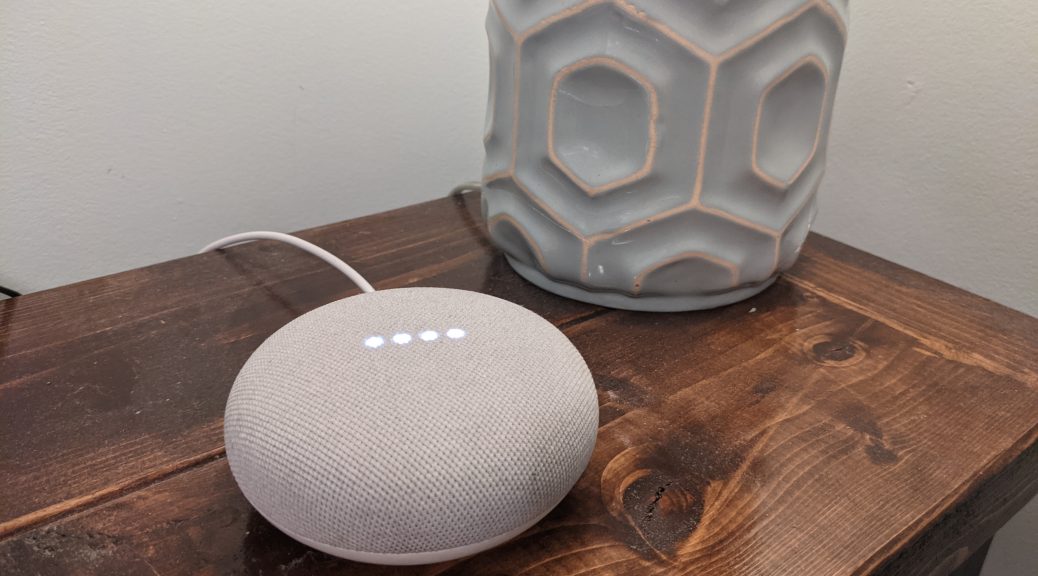
Google Devices and Inquiry
We have a Google device in each bedroom and in the main living area in our house. I am fully confident there is an increasingly growing group of computer nerds in Silicon Valley who, each morning grab their Starbucks, clock in and then pull up a chair around a table with a “Bill Family” label affixed to a speaker, ready to listen in on all the comings and goings of our exciting home life. I don’t blame them, really – we have quite the drama unfold every day.
Although this suspicion of being listened in on 24/7 is admittedly a drawback to this superfluous convenience in our lives, the encouragement of inquiry that it has spawned has been worth it. At any hour of the day, including the wee hours of the morning much to my chagrin, I hear, “Hey Google… how many species of thrushes are there?” or “Okay Google, how much sleep does the average 11-year-old need?” or, um, “Hey Google, what’s our snot made of?” Sigh. Their curiosity truly has no bounds.
As a kid, inquiry wasn’t as convenient. Our information sources were limited to the local public library (when Mom and Dad would drive us), a collection of National Geographic magazines, a 1992 Compton’s Interactive Encyclopedia CD-ROM and, of course, our parents’ seemingly endless fountain of knowledge that we could tap into. There were a number of challenges these sources presented, not least of which was the limitations of information they contained or the difficulty of accessing whatever limited information there did exist. As a Dad, I look back and have become suspicious of the quality of some of the knowledge our parents passed on to us. It reminds me of the time Calvin’s dad explained the Theory of Relativity:

These days, knowledge is gained the second a thought pops into our head and we’re within earshot of a personal digital assistant. It literally could not be easier to acquire new information.
Regardless of how easy access to information has become, there are still limits that I don’t see being overcome anytime soon. Because while Google and Alexa can tell us what snot is composed of and how many thrushes there are–or, in fact, what on earth a thrush is–when you ask it to explain the meaning of life, it answers: “Life has five different meanings. As a noun it means the condition that distinguishes animals and plants from inorganic matter…” Not exactly conversation stopping.
Questions of substance – like God and purpose and suffering and love and success – these answers aren’t as easily arrived at as I once assumed. These are the kinds of questions that pull us back and forth as we wrestle and feel and experience. And because of that, they can’t be adequately addressed by CD-ROM encyclopedias, National Geographic magazines or even artificial intelligence devices.
I’m quite happy that our devices can’t even begin to sufficiently address these deeper mysteries of life. Maintaining wonder and mystery keeps the conversation alive, keeps curiosity afloat, and, more importantly, keeps us humble. All of these are necessary ingredients to developing healthy social development and figuring out our place in the universe. And it keeps life interesting.
I enjoy living with the mystery and ambiguity of things. Not all things, mind you, but a lot of things. For a few years now I’ve been actively resisting the unveiling of mystery, no longer buying into the narrative that all things must be made known. At first, there was a kind of fear that I wouldn’t be able to grab a hold of anything and that I’d be tossed about like waves in the ocean. But I don’t know, I’m fairly grounded still. At least, I think, where it matters. The new tensions that have presented over the years have been welcomed as they’ve caused inquiry to flourish, resulting in meaningful conversations and deeper, more satisfying relationships. The irony of my own flourishing inquiry as I’ve suspended my need to resolve mystery has not been lost on me.
I like that our kids have such each of access to information on these personal devices. All these factoids of knowledge build on each other and lead to more questions, which leads to more questions. My hope is this will continue to lead them into an ever-increasing love of learning, that they’ll embrace inquiry as they live with the tension of Mystery, acknowledging that there are certain questions best left to arrive at in their own time and with a willingness to adjust along the way. And as long as these devices aren’t able to provide any meaningful contributions to these kinds of questions, I think I’m okay with letting those Silicon Valley nerds tune in.
This post is part of a series in the #2021WritingChallenge started by Krista Ewert. This week’s word was “Inquiry.”